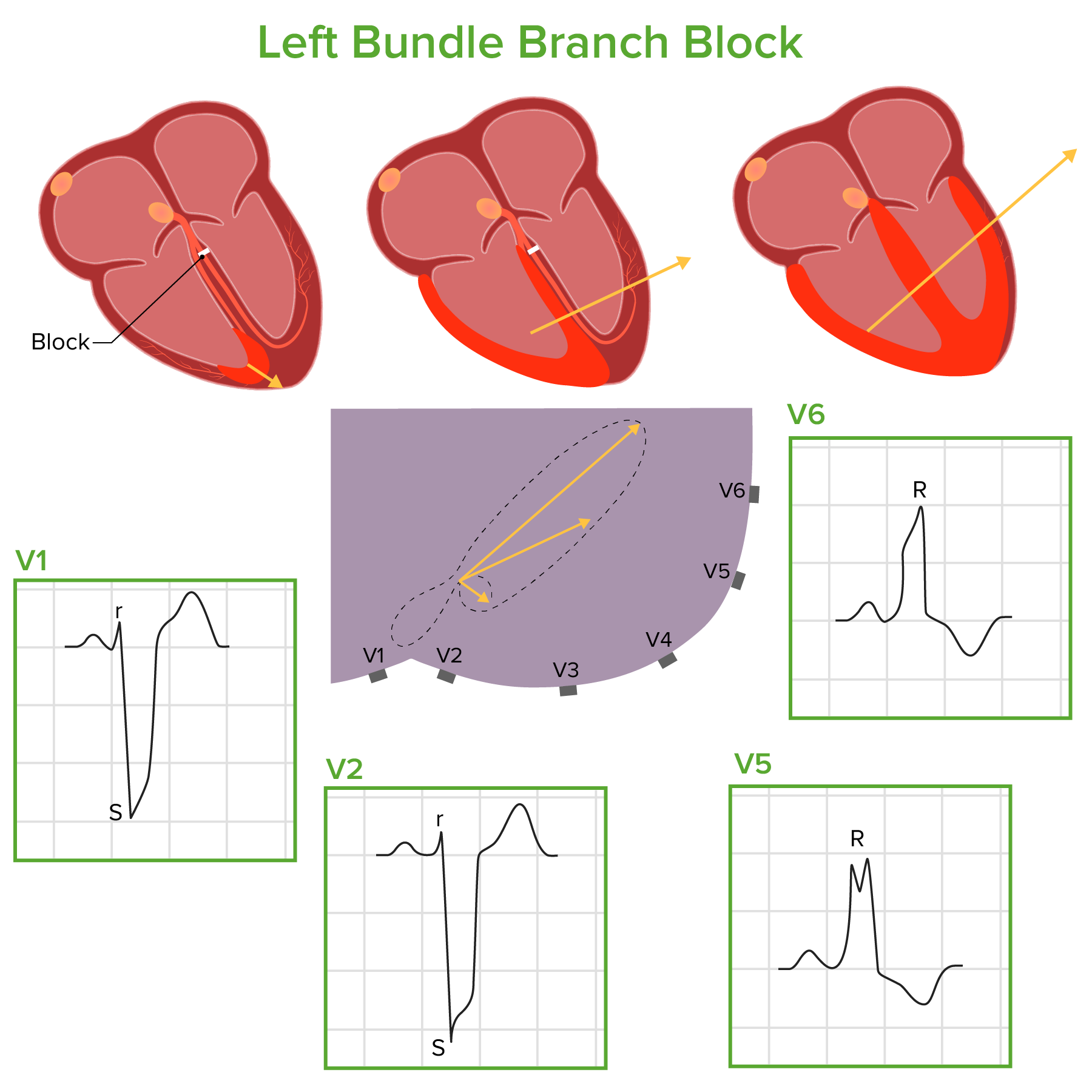Playlist
Show Playlist
Hide Playlist
ECG Case: 70-year-old Man with Acute Anterior MI
-
Slides Bundle Branch and Fascicular Blocks.pdf
-
Download Lecture Overview
00:01 Alright, let's do a case. 00:04 A 70-year-old man suffers in acute anterior myocardial infarct. 00:10 He has heart failure, there's crackles in the lungs from fluid, he's hypotensive, low blood pressure, tachycardia, fast heart rate, jugular venous pressure is elevated implying that right atrial pressure is elevated, and on the second post-MI day, we record the following ECG. 00:29 Okay. So, what is this pattern? Note for wide QRS in all leads. 00:39 Do you see rabbit ears? I don't see any rabbit ears. 00:43 Noticed the marked ST segment changes here and there's no MI pattern. 00:51 You know, there's no Q waves. This is left bundle branch block. 00:56 Left bundle branch block shortly after MI is a bad sign. Remember, we talked about it. 01:01 It means extensive damage, means a large infarct, and these patients need to very, very quickly go to the catheterization laboratory and have usually the left anterior descending coronary artery opened up. 01:14 Now, you can have other combinations of bundles. 01:18 So, you can have a patient that has a previous left bundle now develops a right bundle - that, as you will see in a moment -- leads to complete heart block and a very slow heart rate. 01:30 We're gonna have a whole lecture about that as we go along. 01:33 You can have either a left bundle and a right bundle with left anterior fascicular block so right bundle rabbit ears plus marked left axis deviation or you can have a left bundle with again, marked left axis deviation. 01:51 You can also have left or right bundle with a left posterior block with marked right word axis deviation. 01:58 And you can see that these are all high risk because the conduction system has been severely damaged that they're a high risk for complete heart block. 02:07 Very low heart rate often seen, low blood pressure, and if and when complete heart block develops, patients need pacemaker therapy. 02:17 So, thanks very much for watching this video and I look forward to speaking with you some more about abnormalities on the electrocardiogram.
About the Lecture
The lecture ECG Case: 70-year-old Man with Acute Anterior MI by Joseph Alpert, MD is from the course Electrocardiogram (ECG) Interpretation.
Included Quiz Questions
Which of the following statements about complete heart block is true?
- It can develop as a result of RBBB plus left anterior fascicular block.
- It can develop from low blood pressure.
- It can be due to RBBB alone.
- It can develop from bradycardia.
- It can develop from left posterior fascicular block alone.
Customer reviews
5,0 of 5 stars
| 5 Stars |
|
1 |
| 4 Stars |
|
0 |
| 3 Stars |
|
0 |
| 2 Stars |
|
0 |
| 1 Star |
|
0 |
Dr. Alpert deserves more recognition for his well prepared presentations. I am still thrilled by his fast responses in the forum too.




